Educational piece: by Kim Cusack (read time 4minutes)
As Physiotherapists, facilitating clients’ recovery, reducing pain and improving overall health and quality of life underpins our practice. For many years, research has been concerned with hands-on therapies, exercise rehabilitation and nutritional factors in the management of injury and pain disorders. Despite all this, sleep, “down time” and mental recovery form the foundations of cellular recovery. Almost everything in the human body, down to our immune cells, runs on our circadian clock. Unsurprisingly so, sleep medicine has become extremely topical in recent years and prioritising sleep should be an integral part of our treatment strategy and physio toolbox.
Sleep and pain: two sides of the same coin
Most of us who have experienced an acute injury can appreciate that pain may cause significant disruptions to our sleep pattern. For instance, someone experiencing an episode of lower back pain may experience several intense microarousals (a change in the sleep state to a lighter stage of sleep) per each hour of sleep, which lead to awakenings. However, microarousals are largely innocuous for a person in the short term. Unfortunately, in chronic pain sufferers it is a serious intrusion on sleep. While both chronic and acute pain relate to lost sleep, a 2015 Sleep survey indicates that chronic pain is an especially powerful problem. Indeed, nearly one in four people with chronic pain, say they’ve been diagnosed with a sleep disorder by a doctor, compared with just 6 percent of all others. Pain is a serious intrusion to sleep. Pain is frequently associated with insomnia and these coexisting problems can be difficult to treat. One problem can exacerbate the other.
Though it is widely accepted that pain can lead to a bad night's sleep, new research has shown that a bad nights’ sleep can also increase our pain levels...two sides of the same coin it seems. In a sleep-lab experiment, researchers found that a single night of sleep deprivation reduced a person’s pain threshold by more than 15% and left a distinct signature in the brain’s pain-management centres. In a separate experiment, the same team determined that small deviations in the average amount of sleep from one day to another predicted the level of overall pain felt the next day.
Sleep Hygiene Tips and Tricks
While the impact of sleep deprivation may be far-reaching, all is not lost. Small minor improvements in daily/nightly habits and routine can make big and long-lasting improvements in order to optimize our sleep:
Setting the scene: a calm and restful environment
A restful, tidy environment can ease sleep anxiety.
Use earplugs if external noise is an issue, use dim-lighting and avoid bright lights in the 60 minutes before bedtime...this includes screen time.
Position your alarm clock facing away from you so that you are not counting the seconds...minutes...hours.
White noise can help some people who still cannot sleep.
Adjusting Your Lifestyle
A consistent sleep and waking time every day, even on weekends re enforces the natural circadian rhythm of the body.
Avoid napping as it can make it harder to sleep at night. If you must, limit nap times to 30 minutes at most and at least 4 hours before bedtime.
Stay away from stimulants such as nicotine and caffeine for 4-6 hours before bedtime.
Avoid alcohol before bed
Avoid drinking liquid in general late at night so that you are less likely to wake for bathroom trips.
Avoid intense exercise before bedtime, try stretching or meditation instead
There might actually be something in counting sheep:
Meditation, mindfulness, body scanning, and distraction techniques may all be beneficial in relaxing the body and mind enough in preparation for sleep. I will touch upon two useful exercises to add to your bedtime routine in my next post:
1. Diaphragmatic breathing
2. Progressive muscle relaxation
Yours in health,
Kim
References:


